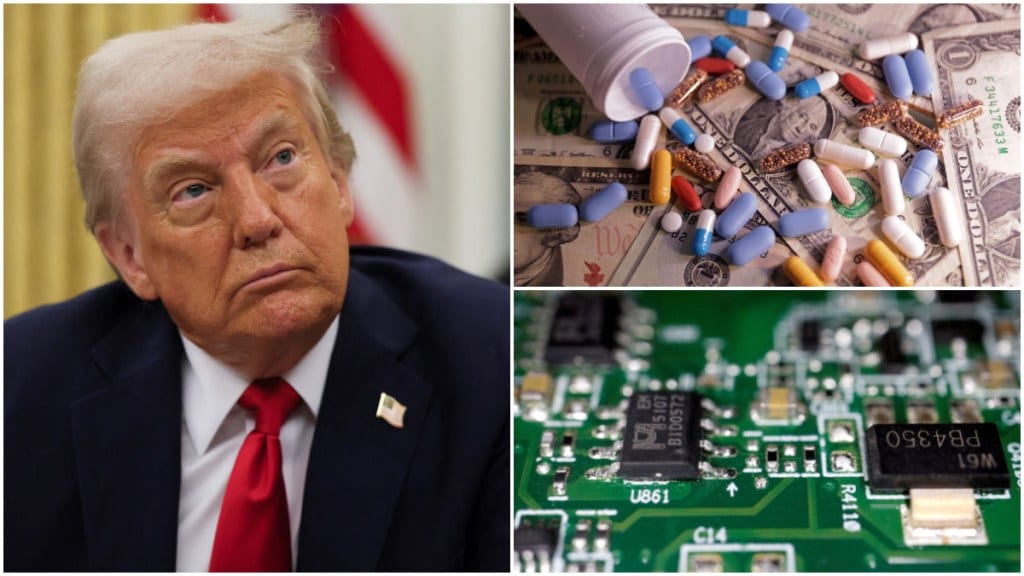US President Donald Trump has said that Washington will soon announce new import taxes on semiconductors and pharmaceutical sector likely within a week. Trump said that the US will first add a small tax on imported medicines, but over the next year to a year and a half, that tax will rise sharply, first to 150% and then to 250%. The goal, he said, is to push companies to make medicines in the US instead of relying on imports. Trump also noted that the announcement will be made soon as semiconductors and chips are a separate category.
Taiwan in crosshairs as Trump eyes chip market
Trump has been pushing for higher tariffs to encourage companies to invest more in making semiconductors in the US. The US Prez had said in March that he was going to get the chip companies back to America, and that they were already coming back on their own. Trump on Tuesday also praised major chipmaker Taiwan Semiconductor Manufacturing Company (TSMC) for expanding its operations in America.
Majority of the world’s most advanced computer chips are made in Taiwan. The country is home to TSMC that supplies to companies like Apple, Nvidia, Qualcomm, and AMD.
Nvidia CEO Jensen Huang had in June downplayed worries about Trump’s new tariff plans. He said the company, based in California, will manage the situation and keep moving forward. He had also stressed the need for the US to strengthen its own chip-making capabilities. Huang, in an interview with USA Today, acknowledged that sudden changes can be difficult, but said that trade agreements will eventually be sorted out, countries will adjust, and businesses like Nvidia will find a way to deal with the challenges.
Taiwanese products will now have to battle 20% tax starting this week. This is lower than the 32% tax that Trump had earlier warned about in his April 2 “liberation day” announcement.
Trump has claimed that the TSMC is planning to spend $300 billion to build the world’s largest chip-making facility in Arizona. However, it’s not clear where that number came from. TSMC has actually announced a total investment of about $165 billion over the coming years, reported Bloomberg. This includes plans for six advanced chip factories, two packaging units, and a research center in Arizona.
Trump’s tough warning to drug makers
Trump shared his tariff plans during an interview with CNBC, where he once again warned that he may put heavy taxes on the drug industry to push companies to move manufacturing back to the US. He also told major medicine suppliers to sharply lower their prices or face fresh penalties.
Big drug companies like Merck and Eli Lilly have many factories in different parts of the world. Nearly 90% of US biotech firms depend on imported materials for at least half of their approved products, Bloomberg reported citing an industry group.
According to Bloomberg, the tariffs on pharma, metals, and other sectors come from trade investigations that usually take around nine months. These actions are taken for national security reasons under a law called Section 232 of the Trade Expansion Act. This legal path is considered stronger than the emergency powers Trump used earlier to target specific countries and now those earlier tariffs are now court challenges. The new round of “reciprocal tariffs” is expected to begin on Thursday.
Increased tariffs to impact AI giants
The report further added that the US Commerce Department has been looking into the semiconductor market since the month of April. If these tariffs are introduced, they could make advanced chips more expensive. This would affect major tech companies like Amazon, Meta, Microsoft, and OpenAI, which are planning to spend billions on semiconductors to power their AI projects.

